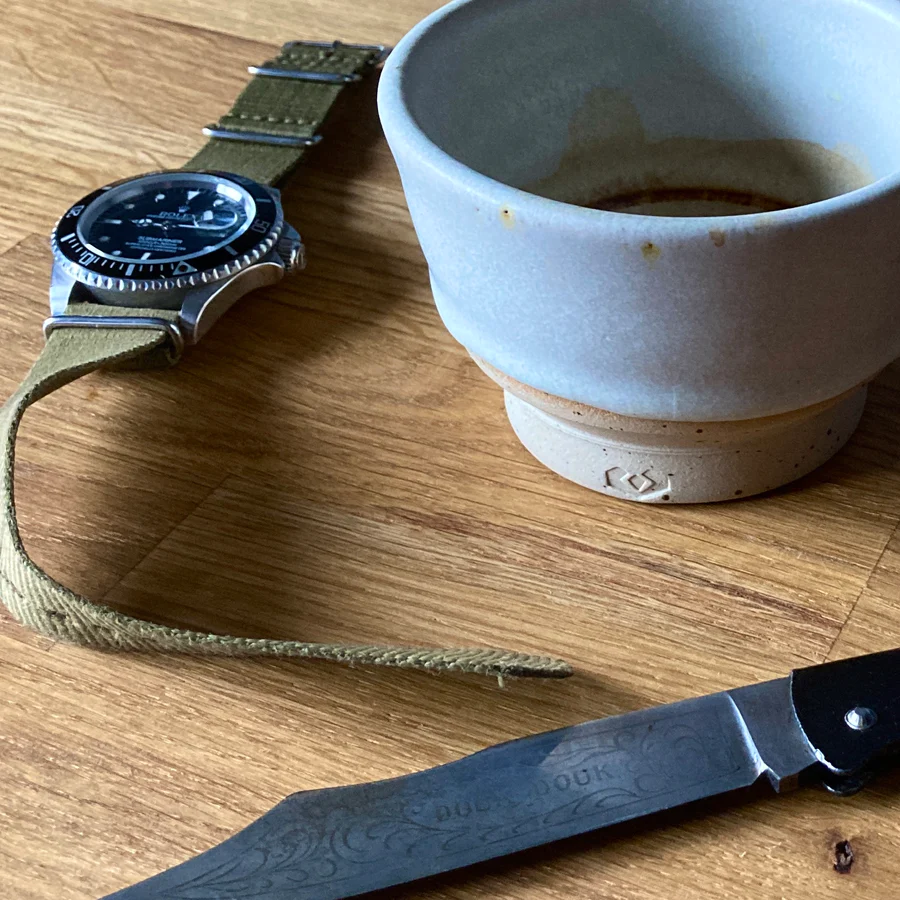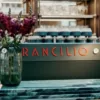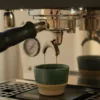Take your fathers old toolwatch that he wore every day, the stained blade you bought as a kid and still use, or that Shoji Cappu your friend gave you when a coffee love was born: it is the patina of daily use that makes a thing sacred.
Over the last 50 years we used to live in that fast paced ultra hectic consume-or-die society until a pandemic hit humanity in 2020, and suddenly we were locked away in our rooms or estates and had plenty of time to meditate and contemplate new ways to continue this life – in case we were granted to stay healthy and without fear to lose everything.
So we stayed alive, and global capitalism was fast to renew its claim that everything has to go back to normal: that is work harder and consume more – but do we really want to go back into that frenzy – of rushing to work, brainless shopping, distracting ourselves with more and more?
At hartmud studio we propose some kind of sacred consumerism: buying a thing to really own it and use it. You will notice that it becomes more precious over the years, the dents, marks and stains will exude a certain charm that no brand new item ever has. The things we own are actually more valuable than the things we don’t own. The real wealth lies not in a psychotic race of owning more and more, and the real poverty is the endless hunger and unstoppable greed to own more and more. It is the endless longing which makes us uneasy, and the appreciation of what we have that makes us happy.
Call it material biography or call it soul if you like: it builds over time, maybe like that old rugged tool-watch you saw your father wearing every day. Or that unobtrusive delicate Shoji Lotus coffee cup you solemnly use twice a day.
Own things over time. Use them, every day, over a period of many years or a life time. That’s what makes things sacred. One day your grown up child will say: this cup always remembers me of you.
What are the few sacred things you really own?




Leave a reply